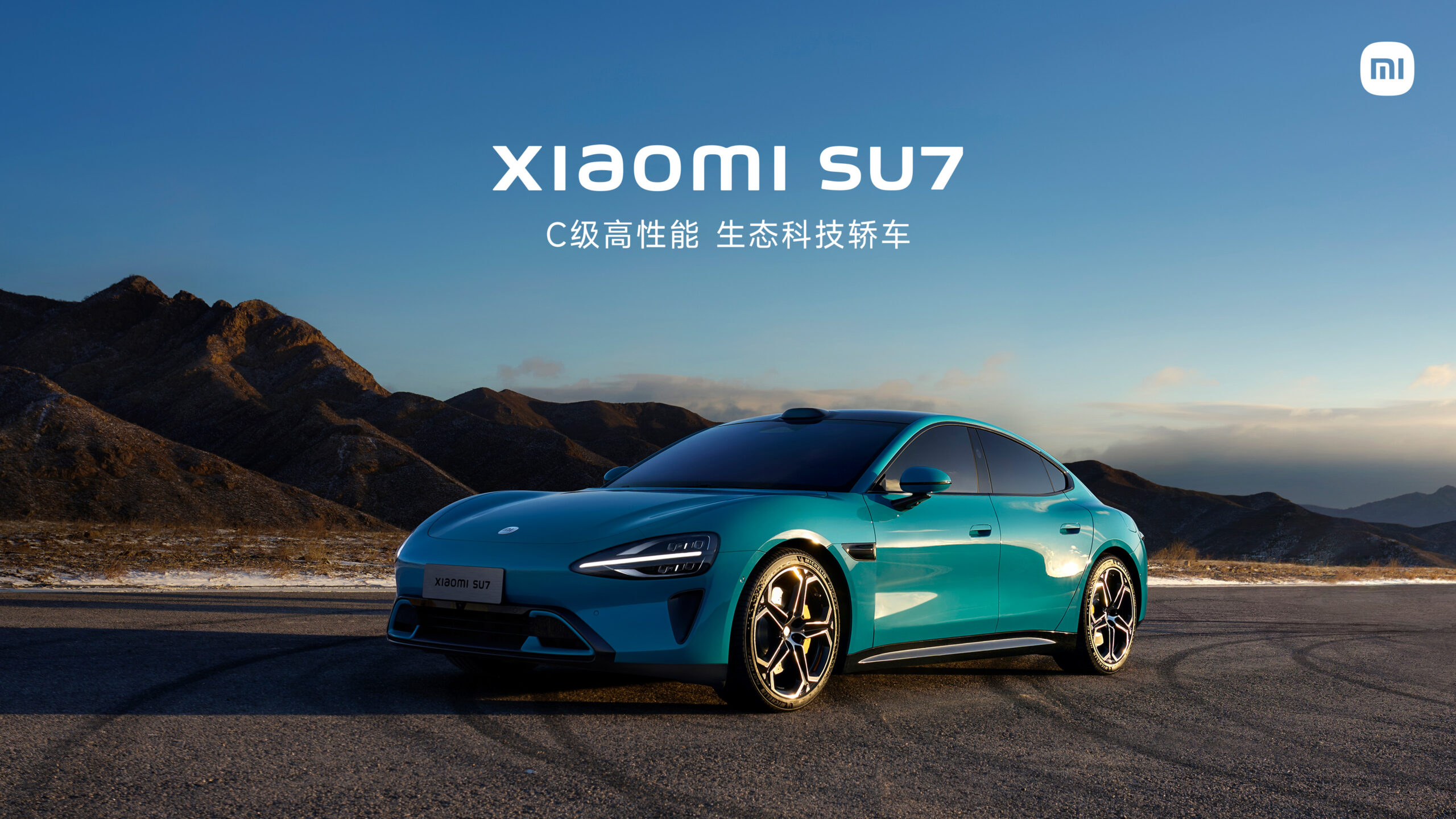
In an audacious move, Xiaomi, the renowned Chinese smartphone manufacturer, has ventured into the electric vehicle (EV) sector, unveiling its first car, the SU7, at a price point that significantly undercuts Tesla’s Model 3, the current leader in China’s electric sedan market. The announcement came from Xiaomi’s CEO, Lei Jun, on Thursday, setting the stage for an intensification of the price wars within the fiercely competitive Chinese electric car arena.
Xiaomi’s entry into the electric vehicle market is not just a diversification strategy but a calculated move to capture a share of the growing green vehicle sector in China. The company’s CEO, Lei Jun, made a bold statement with the pricing of the standard version of the Xiaomi SU7 at 215,900 yuan ($30,408), starkly lower than the starting price of Tesla’s Model 3, which is pegged at 245,900 yuan in China. This aggressive pricing strategy, Lei admits, will lead to the company selling each car at a loss initially.
Comparison of EV Sedans in China
| Brand | Model | Price (Yuan) | Key Feature |
|---|---|---|---|
| Xiaomi | SU7 | 215,900 | 700km range, HyperOS integration |
| Tesla | Model 3 | 245,900 | Leading in new energy sedan segment |
| BYD | Han | 169,800 | – |
| Nio | ET5 | 298,000 | – |
| Xpeng | P7 | 209,900 | – |
| Zeekr | 007 | 209,900 | Owned by Geely |
This table illustrates the fiercely competitive landscape of the electric vehicle market in China, highlighting the price and key features of the new entrant, Xiaomi’s SU7, against its competitors.
Lei Jun emphasized that the standard version of the SU7 surpasses Tesla’s Model 3 on over 90% of specifications, an ambitious claim in the high-stakes EV market. However, he acknowledged that Xiaomi has a three to five-year journey ahead to match Tesla on all fronts, especially in two unspecified areas. The SU7 boasts a notable driving range of 700 kilometers (approximately 435 miles), exceeding the Model 3’s 606 kilometers, demonstrating Xiaomi’s commitment to innovation in the EV space.
Xiaomi’s car production facility, equipped with full automation for all key manufacturing steps, is claimed to have the capability to produce an SU7 every 76 seconds, although it remains unclear whether the factory is fully operational at this stage. The company reported an impressive reception to the SU7, with orders surpassing 50,000 within 27 minutes of the sales launch.
The electric vehicle market in China is experiencing a surge, with sales of new energy vehicles, including battery-only powered cars, accounting for about one-third of new passenger cars sold, according to the China Passenger Car Association. This boom is attributed to the growing environmental consciousness among consumers and the Chinese government’s push for cleaner energy vehicles to combat pollution.
The SU7 is a part of Xiaomi’s broader “Human x Car x Home” strategy aimed at creating an interconnected ecosystem of devices through its new HyperOS operating system. With most of Xiaomi’s revenue coming from smartphones, the foray into electric vehicles marks a significant pivot towards establishing a footprint in the green technology space. Xiaomi’s president, Lu Weibing, indicated that the company has been on a path to premiumization since 2020, targeting approximately 20 million users within that price segment, potentially for the SU7.
Xiaomi plans to initially roll out the SU7 in China, with international expansion on the horizon in two to three years. The global debut of the car was made at the Mobile World Congress in Barcelona in late February, following a showcase of the vehicle’s exterior and tech specifications in Beijing in late December.
The Xiaomi SU7 is not just about competitive pricing; it is packed with a range of innovative features aimed at enhancing the driving experience. These include:
- Minimum Driving Range: The car boasts a minimum driving range of 700 kilometers, setting a new benchmark in the category.
- Accessories: Xiaomi introduced a range of accessories, including an in-car refrigerator, a custom front-window shade, and a smartphone holder, with some available for free with a car purchase before the end of April.
- Technology Integration: The SU7 supports Apple’s Car Play and can integrate with the iPad, enhancing connectivity and entertainment options for drivers and passengers.
- Driver-Assist Technology: Xiaomi revealed driver-assist technology for highways and cities, expected to be fully available in China by August, positioning the SU7 as a tech-forward choice in the EV market.
Xiaomi’s bold entry into the electric vehicle market with the SU7 is a clear signal of the company’s ambition to diversify and innovate beyond its traditional stronghold in smartphones. By setting a competitive price point and offering advanced features, Xiaomi is poised to make a significant impact in the EV space, challenging established players like Tesla and contributing to the acceleration of electric vehicle adoption in China and potentially, globally. As the EV market continues to evolve, Xiaomi’s move could mark a turning point in the race towards sustainable and connected mobility solutions.
Related News:
Featured Image courtesy of Mi.com
